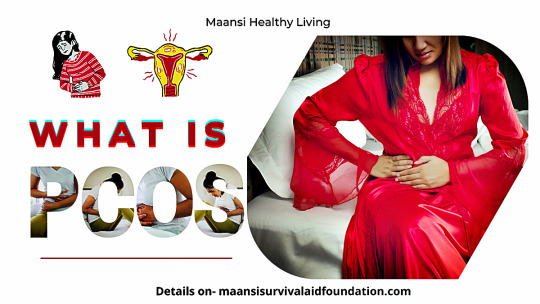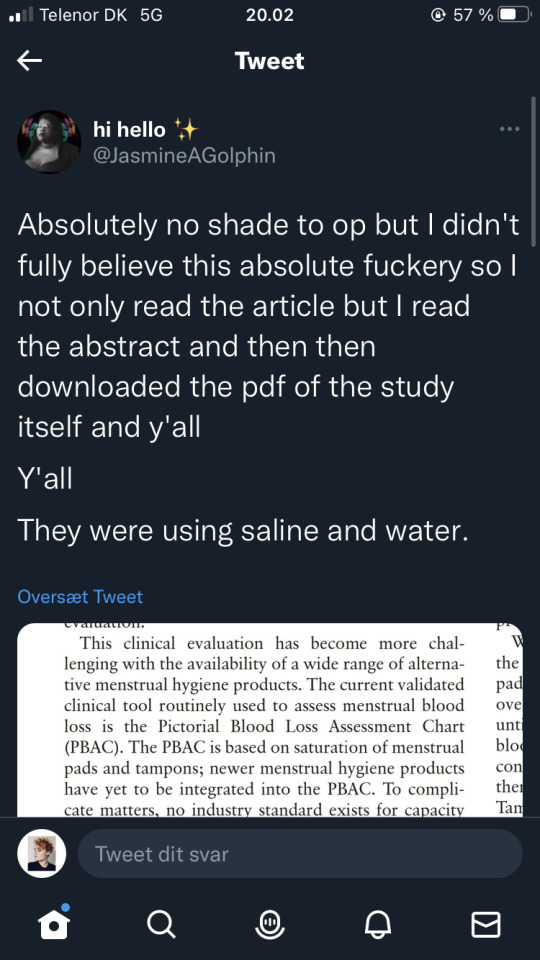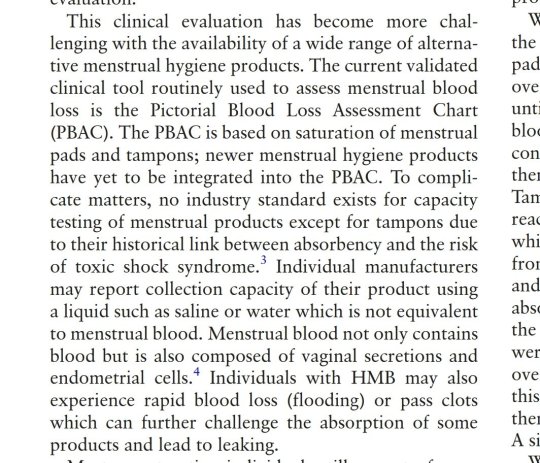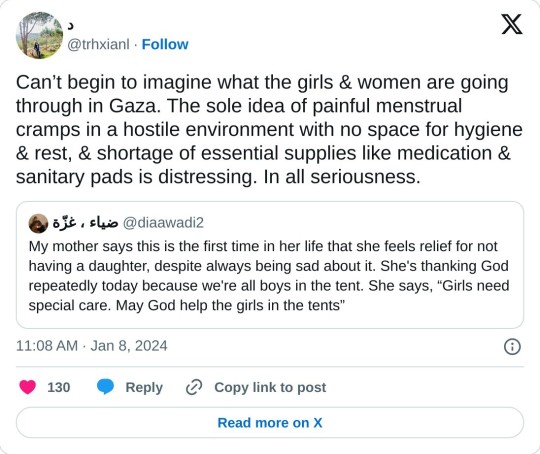#Menstrual periods
Text
What is PCOS?
Polycystic ovary syndrome, in short, called PCOS is a health condition associated with hormonal imbalance. It is common among women of reproductive age. PCOS can impact your fertility ie ability to have a child. PCOS can cause irregular, missed, or more extended menstrual periods. It can also lead to excess androgen levels (male hormone), excessive hair growth in the areas where it is not…

View On WordPress
#Androgen levels#diabetes#Endometrial cancer#Fertility#Healthy diet#Healthy lifestyle#Heart disease risk#High blood pressure#Hirsutism#Hormonal imbalance#insulin#Menstrual periods#Obesity#Ovarian follicules#Ovulation#PCOS#Polycystic ovary syndrome#Reproductive age women
3 notes
·
View notes
Text

#yemen#jerusalem#tel aviv#current events#palestine#free palestine#gaza#free gaza#news on gaza#palestine news#news update#war news#war on gaza#palestinian women#international women's day#menstrual health#period poverty
20K notes
·
View notes
Text
everybody’s horny or on their period or microdosing mushrooms or having their birthday soon… march really has arrived
#my dashboard is synched in menstrual cycle and psychedelic therapy due to the harmonic convergence of waning Pisces and waxing aries season#I got my period the morning after posting this 💃#so now I’m all four#1k#5k#10k
17K notes
·
View notes
Text




hey, hi, I was just on the former bird app and came across this info from a brand new study and now I cannot stop screaming internally??? what the actual fuckkkk
theres' an article from the guardian here and here is the actual study:
#period products#menstruation#what the fuck what the fuck!!!#i know i probably shouldn’t be surprised but wtffff#idk what to tag this but#science#menstrual bleeding#heavy bleeding#period problems#reproductive health#alt text#described#physical health#blood mention tw#periods#edit: btw I skimmed the article overview and I’m glad to say it seems very inclusive#so once again: terfs can go fuck themselves in the not pleasant way <3#it always bears repeating and I will ad naseum
39K notes
·
View notes
Text
Anon feels like getting their first period was almost traumatic because of how deeply ashamed they felt about it, even though everything about it was normal and they knew it would happen.
–
We ask your questions so you don’t have to! Submit your questions to have them posted anonymously as polls.
#polls#incognito polls#anonymous#tumblr polls#tumblr users#questions#polls about the body#submitted nov 29#periods#menstruation#menstrual cycle#puberty#sex education
8K notes
·
View notes
Quote
[1] I want to STRESS that there's an issue with people painting menstrual periods as gross due to their association with femininity, which has led to lack of access to menstrual products and appropriate care.
AND
[2] SPECIAL SPACE FOR AUTISTIC PEOPLE WHOSE SENSORY SENSITIVITY IS TO WETNESS AND MOISTURE and who have a regular period because holy shit, we don't talk enough about this unavoidable sensory nightmare.
on sensory sensitivities
1 note
·
View note
Text

A Sandstone Hieroglpyh dating to 2250 B.C. shows the goddess Isis, her son, and the god Hathor (far left). There is evidence Egyptians used papyrus to manage their menstrual flow. Photograph By Leemage, Corbis/Getty Images
Egyptians Used Papyrus—and Other Ways of Handling Periods Through the Years
How we’ve dealt with our periods over millennia says a lot about our societies—and the persistent stigma surrounding menstruation.
— By Jude Coleman | November 29, 2023
In ancient Egypt, people used softened papyrus, a grass-like plant, to absorb their menstrual blood—sort of like an early tampon. The oldest historical record of period management, it’s also one of the few known, perhaps because menstruation has long been such a taboo subject, experts say.
Since written histories that reference menstruation are so limited, oral histories are some of the only sources available, such as accounts from Indigenous communities, says Alma Gottlieb, a cultural anthropologist at the University of Illinois. Not only that, but the products people likely used to control blood flow were organic materials, meaning that the artifacts have degraded over time.
Ultimately, experts say, people turned to whatever was available and compatible with their clothes. For many, that meant long strips of rags, which could be folded and pinned to clothing, then washed and reused. The practice is how the popular phrase “on the rag” originates, says Sharra Vostral, a menstruation and menstrual product historian at Northwestern University.
“How it's experienced and by whom, and the social attitudes around it—they're different in different places at different times,” says Vostral. For example, in the late 19th century, some U.S. doctors believed menstruation was an illness. One doctor, Edward Clark, believed that going to school while having a period hampered the development of reproductive organs.
Absorbent plant matter such as moss or bark could have also been useful, where available. Though it’s rumored that some Vikings might have used bog moss, for instance, it’s unconfirmed by historical records. Some period care theories float around on the internet, but in fact, “most of that is B.S.,” says Kate Clancy, an anthropologist at the University of Illinois, particularly since it’s difficult to prove speculated methods of period care.
Another option was to free bleed into clothes. For centuries in Europe and the United States, for example, many layers of underskirts and dresses absorbed the blood. Around the end of the 19th century, a garter belt-like contraption emerged. Made with an elastic waistband, the belts had loops on the front and back to clip a rag on.
It might have been helpful in the transition to more fitted clothes, as opposed to massive skirts, but they weren’t great, Vostral says. “People really were interested in something that was better.”
Menstrual Myths
Many cultures have long viewed menstruation negatively.
A lack of understanding fueled such perspectives. Take humoral theory: In the Middle Ages, the body was thought to consist of four liquid components called humors—blood, yellow bile, black bile, and phlegm. These bodily fluids had to stay in balance to maintain health. The monthly blood loss of menstruation was key to stabilizing humors, since women were considered weaker and incapable of keeping their humors in check, says Rachael Gillibrand, a historian at the University of Leeds in the United Kingdom.
That belief persisted into the Victorian era, she says. Other inaccurate perceptions included the idea that menstruating people emitted a toxin and could cause disease, that the blood was impure, and even that the blood could wipe out agricultural crops.
The bias against menstruation can also be traced back to the Bible. Eve was said to have disobeyed a monotheistic god and punished with the curse of painful childbirth. Later, the view on that curse was broadened to include menstruation.
“Discriminatory menstrual practices and perceptions have been practiced since the beginning of civilization,” says Radha Paudel, the founder of the Global South Coalition for Dignified Menstruation in Nepal.
These stigmas created a sense of shame, and even into the early 20th century, people in Western cultures talked so little about menstruation that many adolescents had no idea what was happening to them, says Camilla Røstvik, who studies menstrual culture at the University of Agder in Norway.
“Many of them thought that they were dying,” says Røstvik, “If you're thinking back in time, this must have been very traumatic for a lot of children in particular.”
Shame Persists
Around 1930 in the U.S., advertisements for some of the first modern pads came with a coupon that buyers could hand to druggists without needing to speak. The attitude of silence and shame is true in many parts of the world, says Paudel, who has spent decades researching perceptions of menstruation in cultures from Sri Lanka to Canada.
But it’s important to note that not all cultures villainized menstruation, Clancy says. The Beng people of West Africa, for example, treat menstrual blood as sacred and recognize its importance in reproduction.
Alternatively, the Rungus people of northern Borneo view menstruation neutrally: neither sacred nor cursed. People of this community manage their flow by situating themselves over a gap in the slatted floors of their homes, free-bleeding onto the lush forest greenery below. “It’s all a very casual process,” says Gottlieb.
Today, commercial products have evolved to include more internal control methods, such as tampons, menstrual cups, and menstrual disks.
But Clancy points out that there’s still a significant focus on hiding menstruation and not enough on other topics, such as symptoms that accompany menstruation. Though debilitating cramps can disrupt a person’s daily life, for instance, it’s little discussed.
0 notes
Text
new period poll but i remembered to change the duration this time
once again, don’t want any terfs touching this. also: doing this a second time bc a lot of people found the old one after it was done (i forgot to change the duration from day to week. this new one will last a week)
10K notes
·
View notes
Text
https://www.instagram.com/reel/Cy3aPDdOndo/?igshid=MTc4MmM1YmI2Ng==
This dad is asking if he should also teach his sons about periods, and i can't find that long post about how families who have taught their sons about menstration, have had so many positive effects.
0 notes
Text
I’m cramping rn and I have a very bad feeling it’s gonna be my period
1 note
·
View note
Text
"we like young women because biologically, that means they're fertile"
then why do you find periods disgusting? those are the single most indicative sign of fertility. by that logic, you must be incredibly attracted to a women who speaks openly about her period, right?
#radical feminists please touch#radical feminists do interact#radblr#bisexual#bi#transmedical#transmed#listen to trans women#misogynist#fertility#periods#menstruation#menstruation health#menstrual health#menstrual cycle#men are stupid#terfblr#radical feminism#transgender#gender critical#terfsafe#feminism
2K notes
·
View notes
Text
nobody has ever been forced to stay in a menstrual hut because they had a cramp and got moody. because that's not a period. die.
#mine#menstrual huts#female oppression#menstruation#menstrual period#trans period#you are literally evil and narcissistic for this#you truly have no idea what women to through#mtf period
552 notes
·
View notes
Text

#yemen#jerusalem#tel aviv#current events#palestine#free palestine#gaza#free gaza#news on gaza#palestine news#news update#war news#war on gaza#menstruation#menstrual health#women's rights#period poverty
756 notes
·
View notes
Text
We ask your questions so you don’t have to! Submit your questions to have them posted anonymously as polls.
#polls#incognito polls#anonymous#tumblr polls#tumblr users#questions#polls about the body#submitted nov 25#periods#menstruation#menstrual cycle#menstrual health#anatomy
3K notes
·
View notes
Text
important reminder for people who menstruate:
if your cramps are so painful you can't do daily tasks, take care of yourself or get out of bed. if you pass out or vomit from cramps. if you can't walk or stand up properly from cramps. if you need to take pain medicine when you get cramps or else you will get sick, pass out, whatever.
seek medical help. people talk about how painful cramps are, and it's true, but there's a level of pain that simply isn't normal, and you need to get it checked
signed: someone who was recently diagnosed with endometriosis
#sam.txt#sam.message#psa#menstruation#menstrual cycle#periods#endometriosis#pcos#menstrual health#menstrual cramps#period cramps#health#emetophobia#emetophobia tw#medical#medical tw#ask to tag
2K notes
·
View notes
